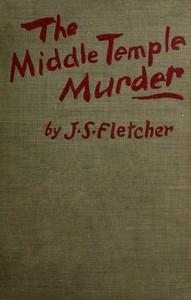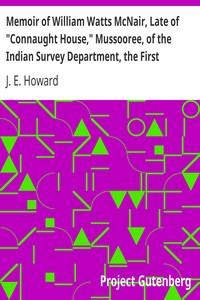|
|
Read this ebook for free! No credit card needed, absolutely nothing to pay.Words: 98533 in 34 pages
This is an ebook sharing website. You can read the uploaded ebooks for free here. No credit cards needed, nothing to pay. If you want to own a digital copy of the ebook, or want to read offline with your favorite ebook-reader, then you can choose to buy and download the ebook.

: England's Antiphon by MacDonald George - English literature History and criticism; Religious poetry English History and criticism@FreeBooksTue 06 Jun, 2023 INTRODUCTION. ENGLAND'S ANTIPHON. INTRODUCTION. If the act of worship be the highest human condition, it follows that the highest human art must find material in the modes of worship. The first poetry of a nation will not be religious poetry: the nation must have a history at least before it can possess any material capable of being cast into the mould of religious utterance; but, the nation once possessed of this material, poetry is the first form religious utterance will assume. For song is the speech of feeling. Even the prose of emotion always wanders into the rhythmical. Hence, as well as for other reasons belonging to its nature, it is one chief mode in which men unite to praise God; for in thus praising they hold communion with each other, and the praise expands and grows. My object is to erect, as it were, in this book, a little auricle, or spot of concentrated hearing, where the hearts of my readers may listen, and join in the song of their country's singing men and singing women. I will build it, if I may, like a chapel in the great church of England's worship, gathering the sounds of its never-ceasing choir, heart after heart lifting up itself in the music of speech, heart after heart responding across the ages. Hearing, we worship with them. For we must not forget that, although the individual song springs from the heart of the individual, the song of a country is not merely cumulative: it is vital in its growth, and therefore composed of historically dependent members. No man could sing as he has sung, had not others sung before him. Deep answereth unto deep, face to face, praise to praise. To the sound of the trumpet the harp returns its own vibrating response--alike, but how different! The religious song of the country, I say again, is a growth, rooted deep in all its story. There is a sense in which I may, without presumption, adopt the name of Choragus, or leader of the chorus, in relation to these singers: I must take upon me to order who shall sing, when he shall sing, and which of his songs he shall sing. But I would rather assume the office of master of the hearing, for my aim shall be to cause the song to be truly heard; to set forth worthy points in form, in matter, and in relation; to say with regard to the singer himself, his time, its modes, its beliefs, such things as may help to set the song in its true light--its relation, namely, to the source whence it sprung, which alone can secure its right reception by the heart of the hearer. For my chief aim will be the heart; seeing that, although there is no dividing of the one from the other, the heart can do far more for the intellect than the intellect can do for the heart. We must not now attempt to hear the singers of times so old that their language is unintelligible without labour. For this there is not room, even if otherwise it were desirable that such should divide the volume. We must leave Anglo-Saxon behind us. In Early English, I shall give a few valuable lyrics, but they shall not be so far removed from our present speech but that, with a reasonable amount of assistance, the nature and degree of which I shall set forth, they shall not only present themselves to the reader's understanding, but commend themselves to his imagination and judgment. SACRED LYRICS OF THE THIRTEENTH CENTURY. In the midst of wars and rumours of wars, the strife of king and barons, and persistent efforts to subdue neighbouring countries, the mere effervescence of the life of the nation, let us think for a moment of that to which the poems I am about to present bear good witness--the true life of the people, growing quietly, slowly, unperceived--the leaven hid in the meal. For what is the true life of a nation? That, I answer, in its modes of thought, its manners and habits, which favours the growth within the individual of that kingdom of heaven for the sake only of which the kingdoms of earth exist. The true life of the people, as distinguished from the nation, is simply the growth in its individuals of those eternal principles of truth, in proportion to whose power in them they take rank in the kingdom of heaven, the only kingdom that can endure, all others being but as the mimicries of children playing at government. Free books android app tbrJar TBR JAR Read Free books online gutenberg More posts by @FreeBooks
: The Ramblin' Kid by Bowman Earl Wayland - Western stories; Cowboys Fiction; Texas Fiction; Ranch life Fiction@FreeBooksTue 06 Jun, 2023

: The Middle Temple Murder by Fletcher J S Joseph Smith - Detective and mystery stories Detective Fiction@FreeBooksTue 06 Jun, 2023

: The History of a Crime The Testimony of an Eye-Witness by Hugo Victor Joyce T H Translator Locker Arthur Translator - France History 1789-1900@FreeBooksTue 06 Jun, 2023
|
Terms of Use Stock Market News! © gutenberg.org.in2025 All Rights reserved.






